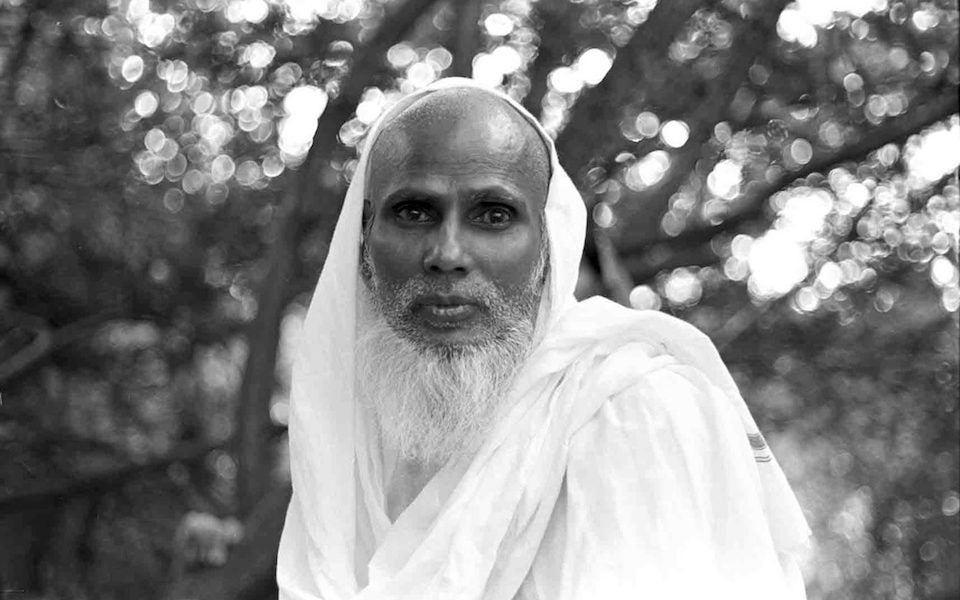
The 1960s and ’70s inspired more than just free love and LSD in America. There was a newfound curiosity and sense of daring that reached far and wide – challenging the norm in government, social strata, arts, sexuality, and religion. It was in this hotbed of experimentation that the Jewfis of Pennsylvania were born. That’s right: the Jewish Sufis.
In 1971, a Sri Lankan Sufi mystic named Bawa Muhaiyaddeen (pictured) came to America and created a fellowship community in the Philadelphia neighborhood of Overbrook. Bawa’s spirituality talks attracted crowds from across ethnic, social, and religious groups, and his interpretation of Sufi Islam was unique, connecting each individual to God regardless of religious classifications.
Bawa’s fellowship made its first meeting house in an old Jewish Community Center with a bimah retrofitted to fit Bawa’s chair. Bawa’s Jewish students found inspiration in his words of universal acceptance and innate divine connection. The fellowship did have its inner conflicts – like the mosque that Bawa built in 1983. (There was controversy about whether this made his practice too rigidly tied to Islam.)
And yet, the Bawa Muhaiyaddeen Fellowship still thrives in Pennsylvania and internationally – with Jews often in leadership roles and the lines between religions purposefully blurred.
As Bawa once said, love must be our only form.
JTA has documented Jewish history in real-time for over a century. Keep our journalism strong by joining us in supporting independent, award-winning reporting.





